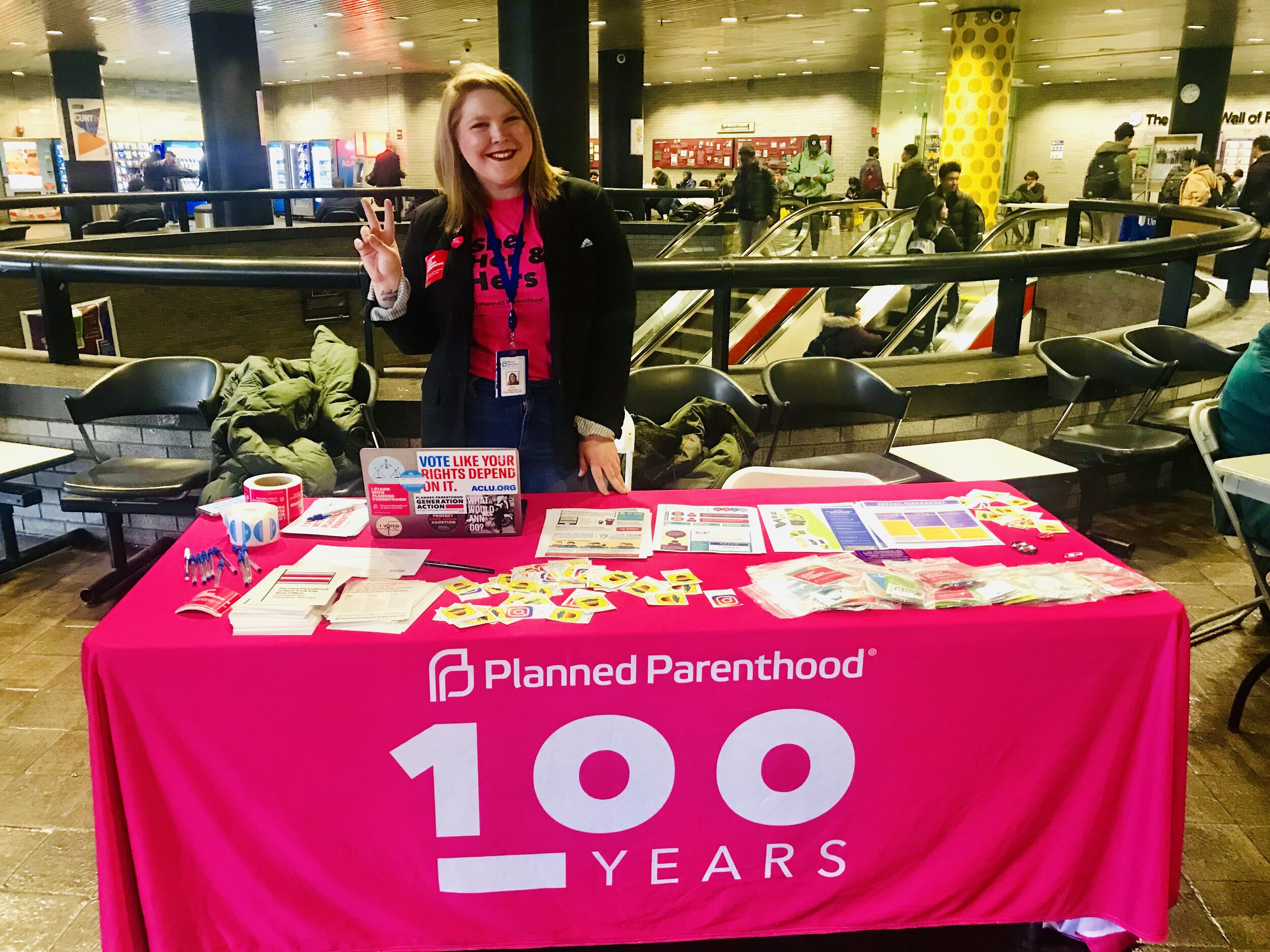Reproductive Justice Week at CCNY, and Why You Should Care
By Mia Milosevic
What is Reproductive Justice (RJ)? The definition is simple andmore expansive than just a woman’s right to have an abortion. It’s the right tomaintain personal bodily autonomy, have children, not have children, and parentchildren in safe and sustainable communities.
From now through Feb. 19, Gender Resources – which provideseducation, outreach and resources to CCNY students on gender and sexuality – has partnered with Planned Parenthood of New York City, toilluminate RJ principles by hosting ReproductiveJustice Week. The events intend to educate CCNY students on matters of sexualhealth, consent, bodily autonomy, and reproductive rights, as well as mobilizestudents around reproductive healthcare and access.
Bailey Borchardt, apolitical science student at City College and Planned Parenthood GenerationCUNY Organizer, believes both women and men should pay attention to RJ. “Itaffects us all,” says Borchardt, 27. “Maternal mortality rates have never been higher in the United States.This is a matter of reproductive justice. Affordable education is a matter ofreproductive justice. Universal healthcare is a matter of reproductive justice.Achieving that equity and improving quality of life for CCNY Students, and NewYorkers in general, is a matter of reproductive justice.”
The Reproductive Justicemovement dates back to 1994, when a collective of Black, indigenous, and transwomen, created the term in response to the exclusionary narrative aroundreproductive rights, which focused exclusively on white, cis-gender women.Borchardt emphasizes that these are not issues of the past, and that eventoday, women of color are often the victims of reproductive injustice atdisproportionate rates.
“February marks BlackHistory Month, [and] Black women have a much higher likelihood of dying due tocomplications at birth than white women,” she explains. “When we center ourmost marginalized communities in the changes we seek, everyone benefits.”
True to the roots of themovement, the organizers are working in collaboration with the LGBT+Open Alliance whichwill be hosting two of the four events.

Events include:
- Real SexTalk: a workshop by a PlannedParenthood to engage students on topics of sexual health, consent, and pleasureon Feb. 13th from 7 to 9 PM in City Towers
- SpeedFriending: a space for students tohave honest conversations about reproductive justice on Feb. 14th 12:30 to 2 PMin NAC 1/211
- Tea Timewith Queerocracy: a discussionof reproductive justice through the lens of black, trans women, on Feb. 19th12:30 to 2 PM in NAC 1/101B.
Borchardt has high hopes for the events, and stresses its importance: “With this political climate, the CCNY campus should feel like an inclusive, safe haven for those of us who are targeted by the presidential administration,” she says. “Hopefully students will come and hear us out, learn something new about themselves and about others, and walk away with a perspective on a topic that affects us all."
*CCNY's Open Alliance also organized the above events with Borchardt, in conjunction with Planned Parenthood and Gender Resources. The Open Alliance is hosting some events, and are dedicated to making the schedule inclusive. By highlighting LGBTQ+ reproductive heath rights and accessibility, they bring a multidimensional perspective to RJ week.





